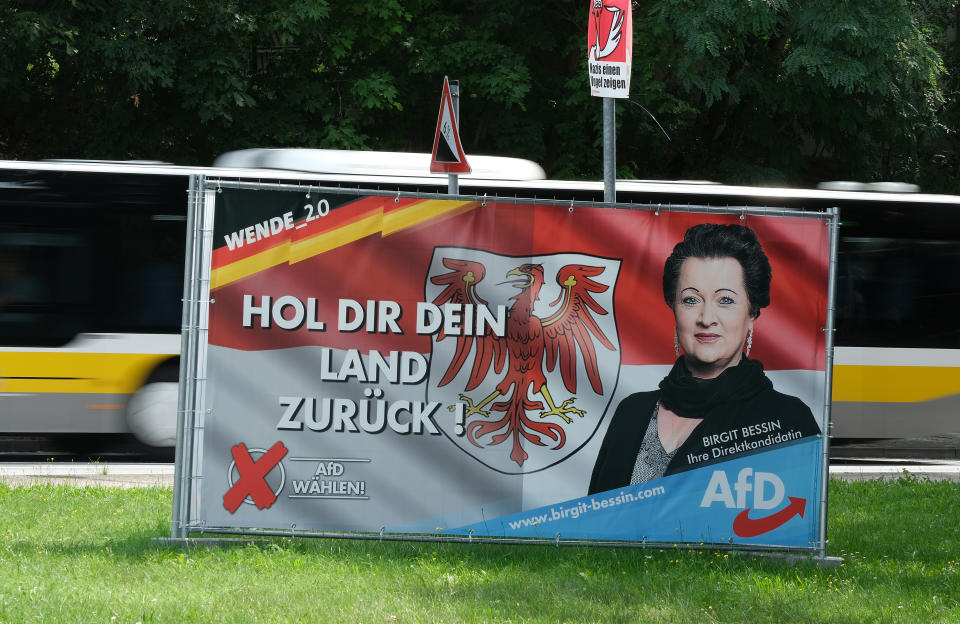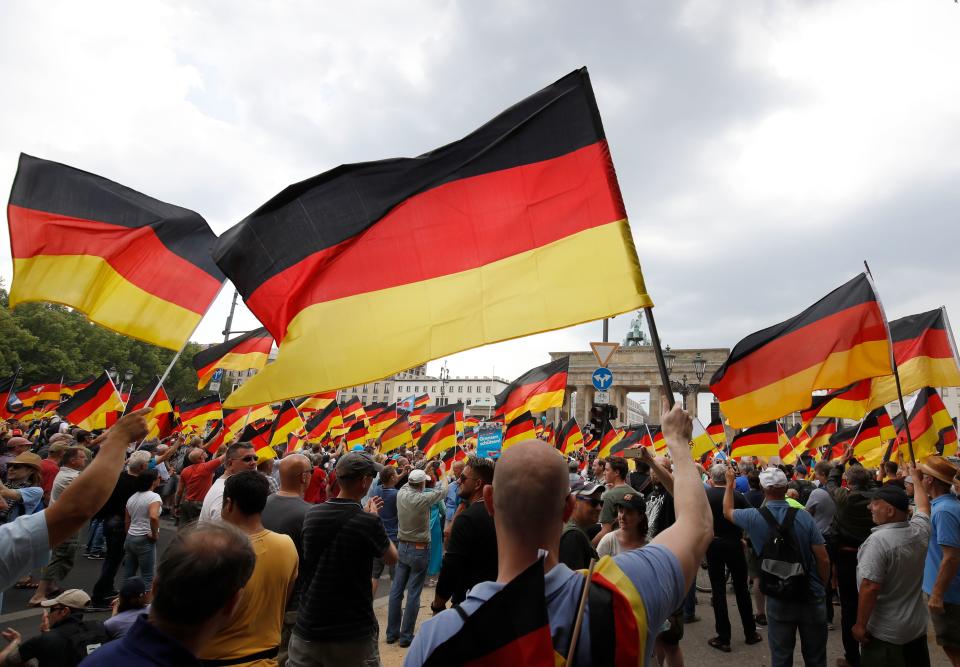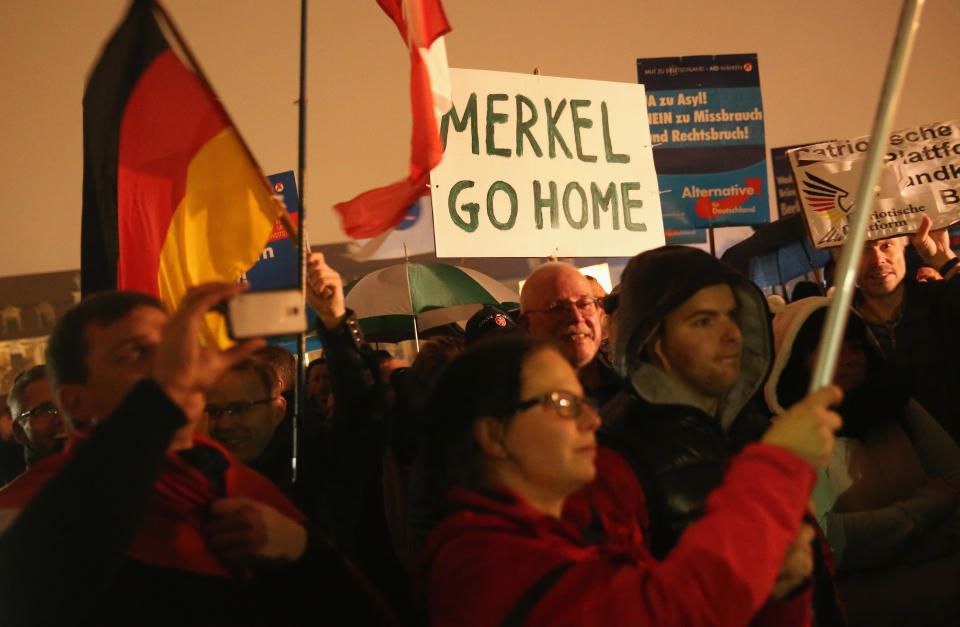Right-wing German party AFD leads polls ahead of regional elections

Germany’s far-right political party Alternative for Germany (AFD) is gaining steam in a number polls, outstripping the Christian Democrats (CDU) — the party formerly led by Angela Merkel — and Social Democrats (SPD).
The eastern German states of Brandenburg and Saxony go to the polls on 1 September, followed by Thuringia in October. The data shows that centrist parties will face an upset in those regional elections.
An Emnid poll for Bild am Sonntag on the 11 August showed the AfD with support of 23%, just ahead of chancellor Angela Merkel’s CDU at 22%.
In Brandenburg, the state surrounding the capital Berlin, Forsa’s most recent survey found the AfD polling at 21%, ahead of the CDU at 18% and the SPD, which has governed the state since 1990, at 17%.
Since its inception in 2014, the anti-immigrant AfD has attracted the bulk of its followers in former East German states, where unemployment and poverty is higher than in the rest of Germany. Many people, especially in depopulated rural areas, have felt left out of Germany’s economic success and gravitated towards the party in protest.

Capitalising on nationwide insecurity and anger at Merkel’s 2015-2016 decision to accept huge numbers of Middle Eastern and African asylum seekers, the AfD shot to third-largest party in Germany in the 2017 general election, wining seats in the national parliament for the first time.
However, anti-immigrant sentiment in the Eastern states had taken root long before the recent refugee influx— there were outbreaks of violence against foreign migrant workers as far back as the early 1990s.
Saxony, where the AfD was the strongest party in the 2017 elections, is regarded by many as a hotbed for right-wing extremism and xenophobia. The Pegida movement (Patriotic Europeans Against the Islamisation of the West) was founded in Dresden in 2014 and still holds regular anti-foreigner marches. The town of Chemnitz was rocked in August last year, when thousands of people, many of them neo-Nazis, took to the streets after after a German man was killed during an argument, allegedly with two immigrants.

In Brandenburg, the town of Cottbus is the at the heart of right-wing activity. Earlier this year, Heiko Homburg from the state’s office for protection of the constitution described it as a “hotspot of right-wing extremism in Brandenburg” and a “toxic entity.”
The AfD’s growing strength has forced the Christian Democrats to shift more to the right to try and win back some of the million-odd voters who deserted the party for the AfD in the last election. In some cases that backfired, like in Bavaria last year, where the CDU took a harder line on migration and lost voters, boosting the Greens into second place in the state.

 Yahoo Finance
Yahoo Finance 